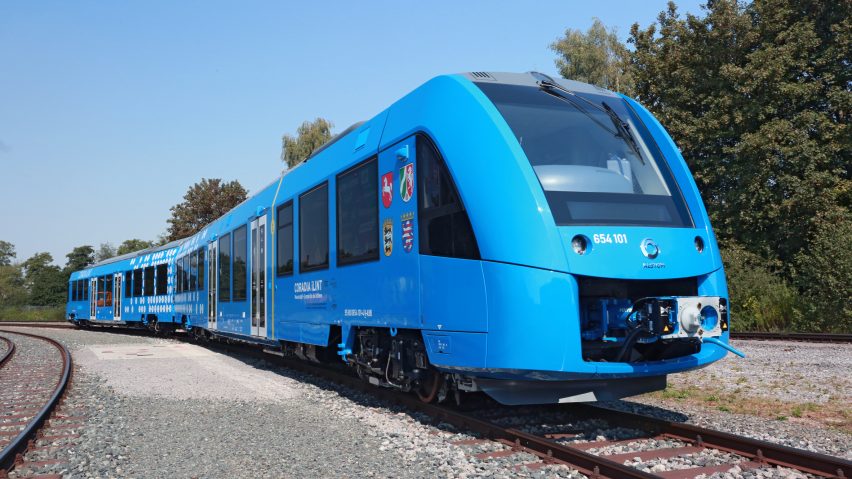The world's first zero-emissions passenger trains powered by fuel cells are set to go into service in Germany.
The Coradia iLint, developed by French rail company Alstom, only emits excess steam and condensed water into the atmosphere – something the company claims to be a world first.
The train is powered by a hydrogen fuel tank on its roof. The fuel cell is supplied with hydrogen and oxygen from the air, which it converts into electric power.
The system is also backed up by lithium batteries, which store the excess power in order to later supply the train when needed.
This means that the train is totally carbon-free, making it a much more sustainable alternative to the 4,000 diesel trains currently in circulation in the country.
"Alstom is proud to launch a breakthrough innovation in the field of clean transportation," said CEO Henri Poupart-Lafarge.
In a statement, Alstom claimed the train has enough onboard hydrogen storage to power an 800 kilometre (497-mile) journey, with speeds topping out at 87 miles per hour (140 kilometres per hour).
According to German news site Die Welt, testing will be carried out by the end of the year. If the results prove successful, the trains will service the Buxtehude-Bremervörde-Bremerhaven-Cuxhaven line in the German state of Lower Saxony by December 2017.
The announcement comes soon after one of Germany's legislative bodies moved to ban petrol-powered cars in favour of electric vehicles by 2030.
Many of the country's car brands – including BMW, Mercedes-Benz and Volkswagen – are already rolling out battery-powered vehicles.
BMW launched its first fully electric production car, called the BMW i3, in 2013, while Audi unveiled an all-electric version of its R8 supercar, the Audi R8 e-tron, in 2015.
The car industry's growing interest in electric vehicles is also being mirrored in the aircraft industry. Earlier this year, Paul Priestman, co-founder of London transport design studio PriestmanGoode, told Dezeen that advances in electric motors could see jet aeroplanes replaced by battery-powered craft, ushering in a new era of personalised electric flying machines.

